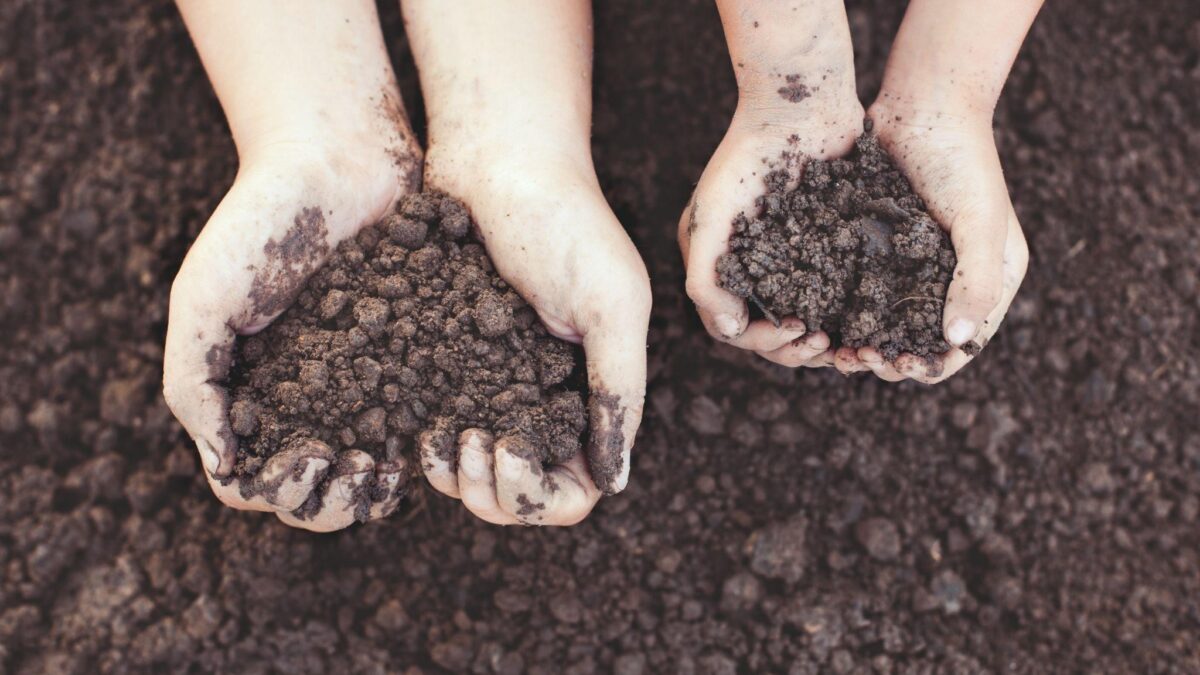Creating a flourishing garden starts with the foundation of all plant life: the soil. Healthy soil is the bedrock of a vibrant garden, providing the necessary nutrients, aeration, and moisture to support plant growth.
At Mazzega’s Landscaping Supplies, we understand the importance of nurturing your garden’s soil, and we’re here to share expert tips on how to improve its health. From understanding the basics of soil composition to the benefits of mulch, these insights will help you cultivate a garden that’s not only beautiful but also sustainable.
Tip #1: Understanding Soil Composition
Before diving into soil improvement techniques, it’s crucial to understand what constitutes healthy soil. Soil is composed of minerals, organic matter, air, and water. The balance of these components determines the soil’s texture, drainage capabilities, and nutrient availability. The ideal garden soil, often referred to as loam, boasts a balanced mix of sand, silt, and clay, offering an optimal environment for most plants.
Tip #2: Testing Your Soil
The first step in improving your garden soil is testing its pH and nutrient levels. Soil pH affects the availability of nutrients to plants. Most garden plants thrive in slightly acidic to neutral soil (pH 6.0-7.0). Testing kits are readily available at garden centres, allowing you to assess your soil’s condition at home. Depending on the results, you can adjust the pH using lime (to increase alkalinity) or sulphur (to increase acidity).
Tip #3: Incorporating Organic Matter
Adding organic matter is a fundamental practice for enhancing soil health. Compost, aged manure, and leaf mould improve soil structure, increase nutrient content, and enhance moisture retention. Work organic matter into your garden beds annually to replenish nutrients consumed by plants. This practice also encourages beneficial microbial activity, which is vital for nutrient breakdown and absorption.
Tip #4: Proper Watering Techniques
Water is a critical component of soil health, but overwatering or underwatering can harm your garden. The key is to maintain consistent moisture levels. Deep, irregular watering promotes the development of deep rooting systems in plants, making them more drought-tolerant and robust. Consider installing a drip irrigation system to deliver water directly to the roots, reducing evaporation and preventing soil compaction from overhead watering.
Tip #5: Mulching for Soil Health
Now, let’s delve into the benefits of mulch, a critical aspect of soil health. Mulch refers to any material spread over the surface of the soil to retain moisture, suppress weeds, and improve soil quality.
Organic mulches, such as straw, wood chips, or leaf litter, decompose over time, adding valuable organic matter to the soil. This process not only enriches the soil but also improves its texture and fertility, promoting healthier plant growth. Mulch also helps regulate soil temperature, protecting roots from extreme heat and cold.
Tip #6: Crop Rotation and Cover Crops
Implementing crop rotation and planting cover crops are agricultural practices that can benefit garden soil. Rotating plant families reduces the risk of soil-borne diseases and pest infestations. Meanwhile, cover crops, such as clover or annual ryegrass, planted during off-seasons prevent soil erosion, suppress weeds, and improve soil structure upon decomposition.
Tip #7: Reducing Soil Compaction
Soil compaction is detrimental to plant growth as it limits root penetration and reduces air and water infiltration. To prevent compaction, minimise walking on garden beds and use stepping stones or paths to distribute weight evenly. Additionally, consider raised beds or no-till gardening methods, which preserve soil structure and promote a healthy root environment.
Tip #8: Encouraging Beneficial Organisms
A healthy soil ecosystem teems with beneficial organisms, including earthworms, bacteria, and fungi. These organisms play crucial roles in organic matter decomposition, nutrient cycling, and natural soil aeration. Enhance biodiversity by avoiding chemical pesticides and fertilisers, which can harm soil life. Instead, opt for organic amendments and practices that support a vibrant soil ecosystem.
Tip #9: Addressing Drainage Issues
Proper drainage is essential for preventing waterlogged soil, which can lead to root rot and other plant diseases. If your garden has poor drainage, consider incorporating organic matter to improve soil structure or installing a drainage system. For areas with persistently wet soil, selecting plants adapted to moist conditions can turn a challenge into a feature of your garden.
Tip #10: Regular Maintenance
Finally, regular monitoring and maintenance are key to sustaining soil health. Keep an eye on plant performance and soil conditions, adjusting your care practices as needed. Remember, improving soil health is an ongoing process, not a one-time fix.
Conclusion
At Mazzega’s Landscaping Supplies, we believe that understanding and improving your garden’s soil health is essential for creating a lush, thriving garden. By following these tips into your gardening practices, you can ensure your plants have the strong foundation they need to flourish. Whether you’re a seasoned gardener or just starting, focusing on soil health will bring lasting beauty and vitality to your outdoor space.
Remember to get in touch with Mazzega’s Landscaping Supplies to know the best garden soil to suit your needs!


